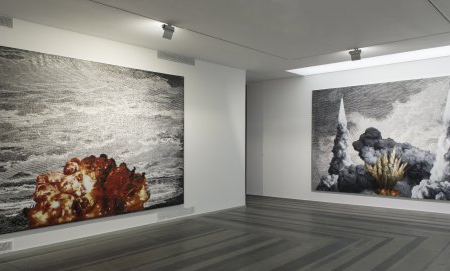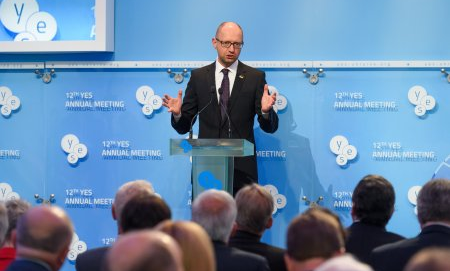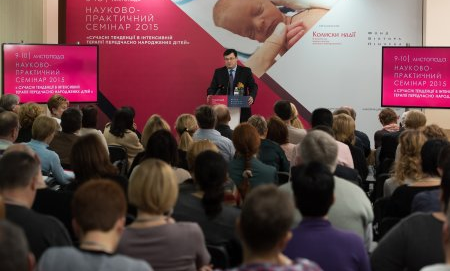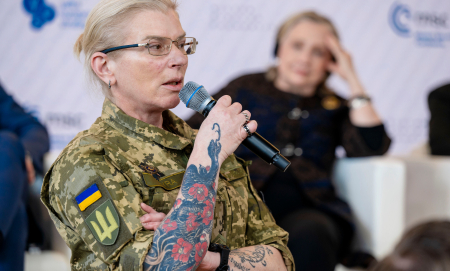News
Yalta European Strategy held YES Online Conversation with Yuval Noah Harari, Rutger Bregman and Zanny Minton Beddoes
Yalta European Strategy (YES) with the Victor Pinchuk Foundation continues its series of online conversations on global challenges and their implications for Ukraine. During the event, historians and bestselling authors Yuval Noah Harari and Rutger Bregman spoke with Zanny Minton Beddoes, editor-in-chief of The Economist. Victor Pinchuk, founder of YES, Victor Pinchuk Foundation, EastOne group, opened the conversation.
Among the questions discussed during the event were how could mankind survive and build a world for all to live a life worth living, what threats and chances have emerged from human nature combined with the ongoing technical disruptions, and how to address global threats after the CODID epidemic?
Opening the conversation Victor Pinchuk said: “Mankind is facing big threats. We need a global brainstorming on an action plan, with the best thinkers of the planet. I hope today’s conversation will contribute to shaping the agenda, based on a broad look at where we come from, who we are and where we are going.”
Yuval Noah Harari commented on the COVID crisis: “The main lesson I would take from the last year (…) is that it has been a year of tremendous scientific success and political failure. I mean, compared to any previous epidemic in history, we have done better and faster in understanding the epidemic and understanding what to do about it. (…) With COVID-19, it took only two weeks to correctly identify the virus and develop tests (…). Within less than a year, we have several effective vaccines. That is an amazing scientific success. (…) And it has been a year of tremendous political failure. (…) While some countries have been quite successful in stopping and containing the epidemic, you look at many other countries, the USA, Brazil, the U.K., and leaders adopted disastrous policies, even more so on the global level. More than a year after the beginning of this pandemic, there is no global leadership. There is no global plan of action of how to deal either with the virus itself or with the economic consequences.”
Asked about major risks, Mr. Harari said: “One of the dangers that we are facing is that great power conflict can be back on the table.(…)The whole world became digital. If you think what a full-scale cyber war could look like in 2019, it would have been devastating, but you could survive it. Now, with everything moving online, we are far more exposed to the dangers of cyber war. Some people came out of 2020 with the idea that we are much more resilient than in the past, but actually, it makes us far more vulnerable.”
Speaking of how the COVID crisis impacts the approaches that governments of different countries could have, Mr. Harari said: “I think that we are much more open now to the idea that governments should provide more services, increase the budgets of public services, especially healthcare, but also, even ideas like UBI” (universal basic income). “My problem is with the notion of “universal” in universal basic income. Almost always people mean national basic income, not universal. Some countries will become much more rich and powerful. They will actually emerge from the crisis in a far better condition than they entered it. This relates especially to the countries that are leading the revolutions in areas like digitalization. And many other countries might see their economies completely collapse. And we will see an accelerating inequality on a global level. And it will be much more difficult to bridge this inequality.”
He continued on the subject of solidarity: “In many ways, this crisis should increase the global solidarity. Everybody has to realise that even if we are completely selfish, it is in our interest to protect the health of every human being on Earth. Out of your own self-interest, you should provide protection and good basic healthcare to everybody in the world.”
According to Yuval Noah Harari, healthy sense of countries’ nationalism could contribute to good cooperation between them: “It’s not nationalism versus cosmopolitanism. I think that nationalism and globalism can go together, and that your national interests should make you cooperate in things like stopping pandemics or preventing climate change. What really worries me when I look at the world right now, is not a clash between nationalism and globalism, it’s the collapse of nationalism in many countries around the world. To have a real cooperation on a global level, you don’t need to overcome nationalism. You actually need to have good healthy self-confident nationalism. We need to make national communities be self-confident and strong to be able to cooperate.”
Ukraine’s President Volodymyr Zelensky had posted on Twitter before the event: “Glad that @harari_yuval 'll be at @yes_ukraine today. Humanity needs to overcome not only #COVID19, but mostly “own inner demons, our own hatred, greed & ignorance.” We must overcome our fears & unite. Welcome the discussion how to resume global solidarity #YESOnlineConversation.”
Rutger Bregman said: “It is really about recognising the potential within human nature. We are obviously not born as cosmopolitans. But there is also the possibility within human nature to overcome that. People have more diversity in their life now, they meet more people from different backgrounds, and they become more cosmopolitan. Young people right now, both in Europe and the US are not only the most highly educated generation this world has ever seen, but also the most ethnically diverse and the most progressive. That is significant. In a way, we are still ruled today by politicians and elites who were children of the Cold War. But now, there is the new generation that looks at this world in a different way and thinks that some things are politically possible that were seen as completely impossible ten years ago.”
Asked about the single most important challenge he sees, Bregman said: “When it comes to the impact of technology, I think we have to be a bit more agnostic. We just don’t know yet. But when it comes to climate change, it is so clear our lifestyle is simply not sustainable. And it’s not clear yet if we are going to make this transition. What we have to do is something that has never been done before in peace time, totally transform the way we live and everything we do. We do not really need to have more knowledge. We have already known about it for quite a long time.”
To watch the full conversation online, please go to the link.























